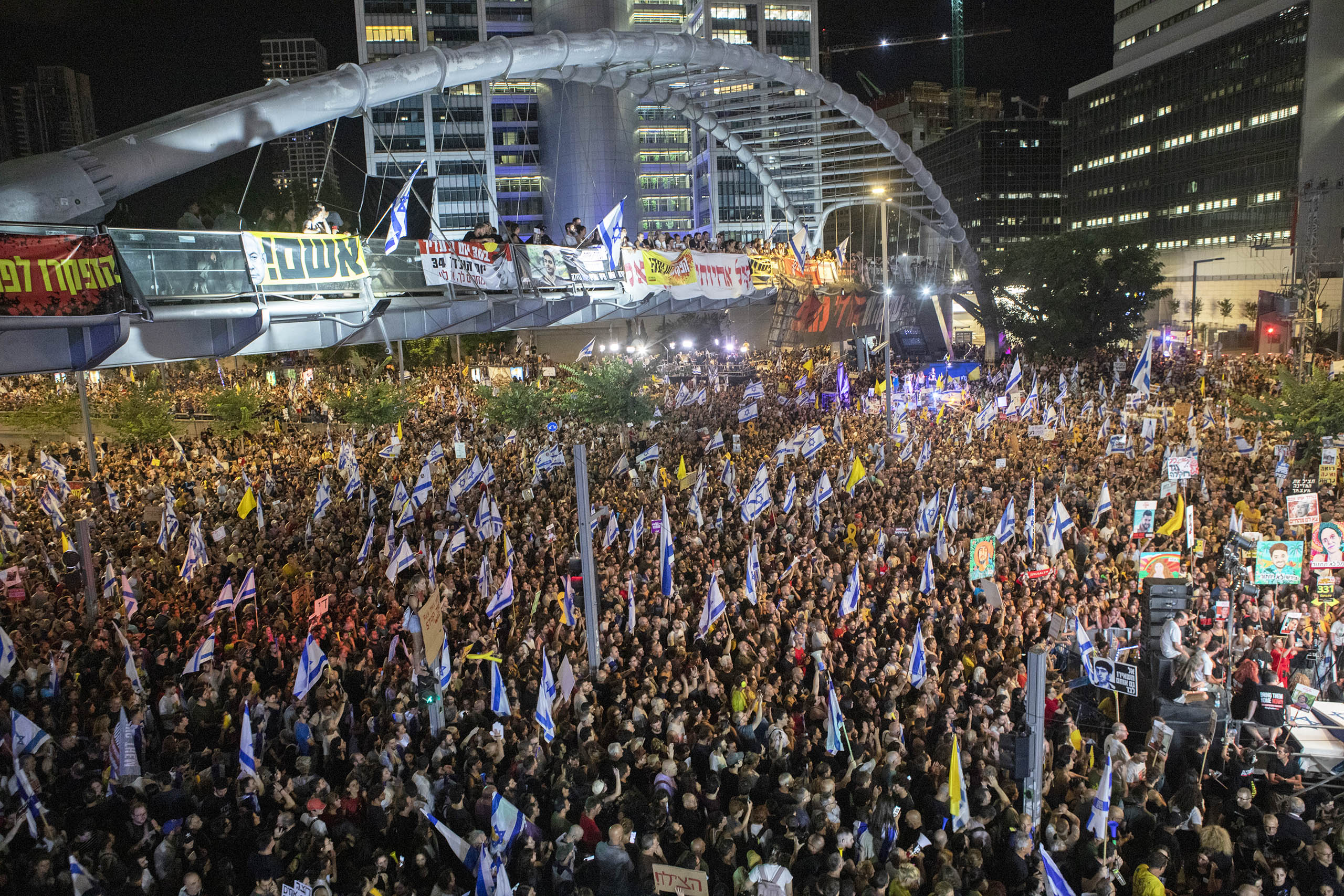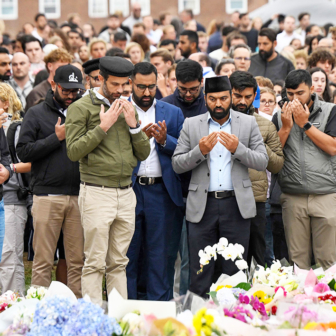Mark 1 September 2024 on your calendar as the day Israeli sentiment coalesced against prime minister Benjamin Netanyahu’s conduct of the war in Gaza. An inflection point was breached when hundreds of thousands of Israelis took to the streets and the country’s Histadrut trade union declared a nationwide strike in support of a negotiated end to hostilities.
The deaths of six hostages, five Israeli and one American, in what appears to have been a rescue operation that ended disastrously has crystalised opposition to Netanyahu’s prosecution of the war. Hostage families are at the forefront of protests against failure to negotiate an end to the conflict.
This revolt has been a long time coming in a country riven by disagreement over what is widely perceived to be Netanyahu’s self-serving efforts to prolong the conflict. Israelis are conflicted over their backing for a ruthless campaign to eliminate Hamas, on the one hand, and a desire to see an enormously destructive war brought to an end, on the other.
At a distance, it is easy to understate the involvement of Israelis in defence of their country at virtually every level. In war, their traditional default position is to put aside political differences. But such is the level of disquiet over Netanyahu’s motivations in continuing the conflict to buy himself time politically that hundreds of thousands of Israelis are saying enough.
The phrase “existential threat” is too frequently used for propaganda purposes to describe pressures that Israeli might be under. In the case of the Hamas pogrom against Jewish people on 7 October, however, and subsequent conflict on Israel’s northern border with an Iran-backed Hezbollah, the phrase is not out of place.
That said, Netanyahu’s brutal conduct of the war, his lack of flexibility around negotiations for a ceasefire, and indeed his arrogant disdain for efforts of Americans and others to bring about a halt to hostilities has vastly complicated efforts to cauterise an open wound.
Has he overplayed his hand? The answer to that question will depend on the next few days, as he faces the wrath of his own people, the open resistance of his defence minister and the disdain of Israel’s security establishment. Adding to public disquiet is the willingness of former heads of Israel’s security agencies, its military and political leaders to speak out against Netanyahu’s conduct of the war.
In the eyes of Israelis and the international community, whether Netanyahu likes it or not, this is his project and it is being pursued at tremendous cost for all concerned, and not least Israel’s for reputation.
A meeting of Israel’s war cabinet last week descended into a shouting match between Netanyahu and defence minister Yoav Gallant over negotiations towards a ceasefire and release of hostages. Netanyahu is refusing to budge on what is known as the Philadelphi corridor along Gaza’s southern border with Egypt. Removing Israeli troops from the corridor is a sticking point: Gallant wants to yield on this issue to enable a ceasefire agreement.
In a tense exchange, Gallant, who was sacked by Netanyahu and reinstated last year over disagreements about the conduct of the war, reportedly called the Israeli prime minister’s attitude towards the hostages a “moral disgrace.”
What this exchange, along with the mass protests, reveals is that the Israeli consensus on the war is deeply fractured. Gallant’s belief in the need for flexibility almost certainly reflects views among senior military, who are opposed to an endless urban conflict at tremendous cost for all concerned. On Sunday he called for an immediate cabinet meeting to reverse Thursday’s decision to keep troops in the Philadelphi corridor.
Israel’s casualties from war, leaving aside economic costs, run into the hundreds. In a small country, this is a heavy burden. (The Palestinian death toll now exceeds 40,000, according to Gazan health authorities.) Among the concerns of the Israeli military is that Israel’s political leadership refuses to describe what might constitute a political solution to a conflict that shows little sign of ending militarily. Netanyahu’s refusal to address this question in pursuit of total victory is not the least of the impediments to a lasting ceasefire and the release of surviving hostages.
In all of this, a feckless American leadership has been exposed. President Joe Biden might express understandable outrage at the death of an American hostage in Hamas hands, but Washington has had ten months to bring this war to a negotiated conclusion that would enable the political and physical rebuilding of Gaza. Thus far, it has failed.
This will not be regarded as a high point in American diplomacy. •




